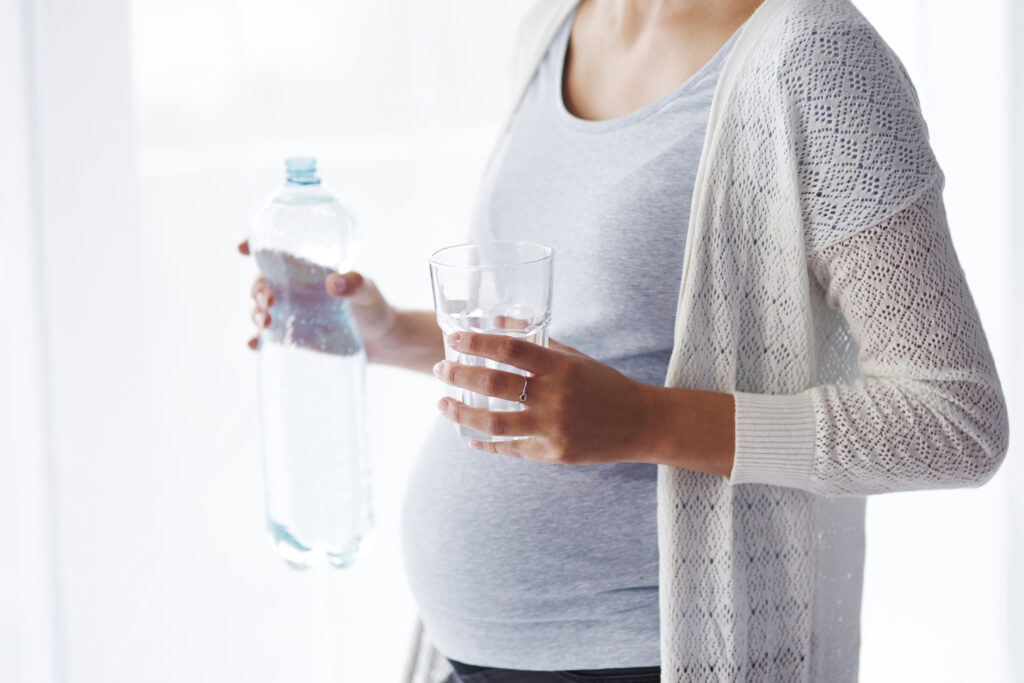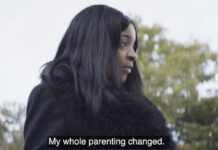In a new study in JAMA Pediatrics, researchers found a robust link between lithium levels in drinking water and autism diagnosis. They found that children whose mothers were exposed to a high level of lithium in drinking water while pregnant were 46% more likely to receive an autism diagnosis than children whose mothers were exposed to a low level of lithium.
“Estimated maternal prenatal exposure to lithium from naturally occurring drinking water sources in Denmark was associated with an increased ASD risk in the offspring. This study suggests that naturally occurring lithium in drinking water may be a novel environmental risk factor for ASD development that requires further scrutiny,” the researchers write.
The researchers were led by Beate R. Ritz at UCLA, Zeyan Liew at Yale, and Ole Raaschou-Nielsen at Aarhus University, Denmark. The study included 8,842 Danish children with an autism spectrum diagnosis, matched by age and sex with 43,864 children without the diagnosis.
 The researchers measured lithium levels in the 144 largest waterways in Denmark, as well as seven other waterways, in order to map the lithium levels throughout the whole country. The lowest lithium levels were 0.6 μg/L, in western Denmark, and the highest were 30.7 μg/L, in the east. “Groundwater,” they write, “is the source of all drinking water in Denmark, typically only with limited treatment and always without chlorination.”
The researchers measured lithium levels in the 144 largest waterways in Denmark, as well as seven other waterways, in order to map the lithium levels throughout the whole country. The lowest lithium levels were 0.6 μg/L, in western Denmark, and the highest were 30.7 μg/L, in the east. “Groundwater,” they write, “is the source of all drinking water in Denmark, typically only with limited treatment and always without chlorination.”
They also mapped the mothers’ addresses from nine months before birth to nine months after to determine which water the mothers were exposed to during pregnancy.
To ensure that other factors did not confound their results, the researchers adjusted for a wide variety of possible confounders, including maternal age, maternal smoking, urban versus rural living, neighborhood socioeconomic status, including neighborhood employment rates, housing, and air pollution.
After adjusting for all of these factors, mothers in the highest quartile of lithium exposure during pregnancy (more than 16.8μg/L) had 46% higher odds of having their child receive an autism spectrum diagnosis (compared with the lowest quartile of lithium exposure). Mothers in the second and third quartiles also experienced increased risk, at 24% and 26% higher odds.
“The findings remained robust after adjusting for several maternal neighborhood socioeconomic factors and air pollution exposures,” they write.
In an accompanying editorial, David C. Bellinger at Boston Children’s Hospital praised the methodology used in this study as very robust, and provided some context on the limitations. Some things to consider in interpreting the findings, he writes, include the inability of the authors to actually measure lithium levels for the individual mothers (using the water in their area as a proxy), the fact that children likely drank this water in their formative years as well (meaning the effect may not just be during pregnancy), and the idea that people also receive lithium exposure from other sources, which might add to the effect.
Nonetheless, he writes, “Many chemicals have now been linked to ASD, including air pollution, pesticides, metals, and phthalates.”
And, he warns, we will only be increasing the level of lithium in our drinking water in the future:
“Anthropogenic sources of lithium exposure are likely to increase, as increased mining will be needed to support the demand for lithium-ion batteries for the rapidly expanding fleet of electric vehicles. Eventually, these batteries will enter the waste stream, threatening additional contamination of water supplies.”
Some researchers have called for adding lithium to drinking water, arguing that it will reduce suicide rates at a population level. And some psychiatrists, such as Nassir Ghaemi, tout its mental health benefits, even while acknowledging that other psychiatric drugs fail to live up to expectations.
But trials of lithium don’t always find such a positive effect. For example, in 2021, a study on veterans was terminated early because the drug didn’t improve suicide-related events compared with a placebo. And a 2022 meta-analysis also found no evidence that lithium prevented suicide-related events.
Worse, lithium is one of the most dangerous drugs in psychiatry’s armamentarium. Patients must be carefully monitored, as lithium toxicity can cause permanent brain damage. Even those who don’t experience this are at risk of chronic kidney disease and other ailments after lithium use. Those taking lithium are also about six times more likely to develop hypothyroidism.
For those who are pregnant, high lithium levels have been shown to increase the risk of spontaneous abortion, congenital anomalies, and cardiovascular problems.
****
Liew, Z., Meng, Q., Yan, Q., Schullehner, J., Hansen, B., Kristiansen, S. M., . . . & Ritz, B. R. (2023). Association between estimated geocoded residential maternal exposure to lithium in drinking water and risk for autism spectrum disorder in offspring in Denmark. JAMA Pediatrics. Published online April 3, 2023. doi:10.1001/jamapediatrics.2023.0346 (Link)
Bellinger, D. C. (2023). Lithium in drinking water—A novel environmental risk factor for autism spectrum disorder? JAMA Pediatrics. Published online April 3, 2023. doi:10.1001/jamapediatrics.2023.0330 (Link)















For an alternative take on the study.
https://futurism.com/neoscope/autism-lithium-water-study
Lithium, along with Caesarean sections, vaccines, the child’s month of birth, food dyes, parental age, gastrointestinal issues, paracetamol and antidepressants, has been identified as yet another ’cause’ of autism that apparently rises relative odds for autism by 10 to 20 %, rarely backed up by subsequent studies.
At some point, it figures that the label of autism says very little about the person diagnosed as such, but a lot about society. I would even contend that the concept of autism nowadays is what eugenics was about a hundred years ago.
Report comment
Psych drugs are showing up aquatic environments and in drinking water:
“Swimming in a Sea of Drugs”, by Katri Weigman from National Library of Medicine
“Your tap water is probably laced with antidepressants”, by Matt Harvey from salon.com
Report comment
Preliminary Thoughts: I appreciate the scrutiny of high lithium levels and the efforts to account for other possible contributing factors for higher risks of autism. I acknowledge that correlation does not equate with causation.
I thought it might be helpful for background info to make reference to past claims that regions of the world lacking lithium in the soil have higher rates of “mental illness”, and to the clinical use of low potency lithium-orotate as a natural supplement for mood regulation, as recommended by Functional-Holistic doctors who offer alternative care to allopathic psychiatry. I thought this might be a helpful differentiation for some readers.
Also, Denmark reminds me of the heart-breaking report of aggressive over-medication in the Danish psychiatric system, such as in “Dear Luise: A Story of Power and Powerlessness in Denmark’s Psychiatric Care System”.
Report comment
My personal experience with lithium oratate has been very positive. I began taking it as a desperate measure to manage Paxil withdrawals and soon realized it is highly effective for managing my ulcerative colitis.
Report comment
I was heartened to read the previous comment from Carol re: the use of lithium orotate. Lithium carbonate is all too often assumed to be the sole therapeutic form of lithium. Indeed, many people don’t even know other forms exist (including many professionals in mental health). Low dose lithium in its natural form as Lithia Water has been known for centuries as a health inducing beverage. The severe side effects that often come with the psychiatric use of lithium are caused, I believe, by the high dosage amounts required by the lithium carbonate form. In our family, we have found lithium orotate to be very helpful. It is far more easily absorbed by the body, and so can be therapeutic in MUCH smaller doses and without negative side effects.
As for the Danish studies mentioned in the above article; what form(s) of lithium and what other substances were in the water(s) studied? Also, in view of the research that already exists on the connection between the health of the gut microbiome and mental function (including autism), it seems negligent that this factor was ignored.
For more on the above, please research the work of psychiatrist James Greenblatt.
Report comment
Lithium levels in drinking water may very well parallel levels of one or more other constituents, metal, trace mineral and/or other, which may be the true or more significant cause/s of the higher rates of such diagnoses, as indeed suggested, I think, by Linda, above.
It’s interesting to read different opinions (as held by the WHO, and NIH, for instance) about whether or not lithium ought to be considered a micronutrient for humans – essential or otherwise – so much so that it seems we may be a way from establishing any generally accepted “optimal” daily dose for anybody.
If, as seems likely, there may be some element of cross-over or substitution in how lithium and magnesium (at the very least) may be used in our bodies/brains, then the complexity of the issue may remain perplexing even for AI for the foreseeable future!?
It might also be interesting to know how many generations of their ancestors have typically or on average resided (continuously) in those highest (or eastern) and lowest (or western) Li areas, at least, before those moms-to-be…
Thank you very much for yet another very thought provoking article!
Tom.
Report comment
I think that the questions and contributions that have been made here are a small example of public discourse that needs to occur broadly with bureaucrats and legislators among stake holders; including consumers, survivors and the bereft as contributors to public policy. That is the desired goal.
Report comment
People say way too many things cause autism and I’m not sure I believe this has anything to do with it, correlation is not causation.
That being said my life is parallel to this in an interesting way.
I was prescribed lithium among other things at age 16 in residential treatment and I have been on it since. I took 1500mg a day at 1 point but they lowered it to 900 after it caused hypothyroidism and I was almost diagnosed with hashimotos. I’ve been autistic my whole life, obviously, first diagnosed in second grade, but I’m just now going through autistic catatonia/late regression. They said I had Asperger’s but now I’m level 2. I’m 19 but I was 18 when I lost the ability to speak completely and things got bad enough that we figured out what this is. I’ve had episodes of speech loss my whole life but they got way more frequent and I had my first freezing episodes at 16 or 17. Psych meds are a known cause of late regression and catatonia in autism by the way.
Also I am not sure if you can see my email but it’s making me write it to comment this so you should know that “here” was inpatient.
Report comment